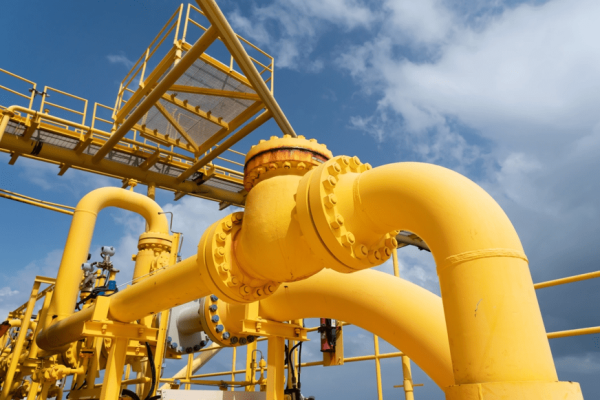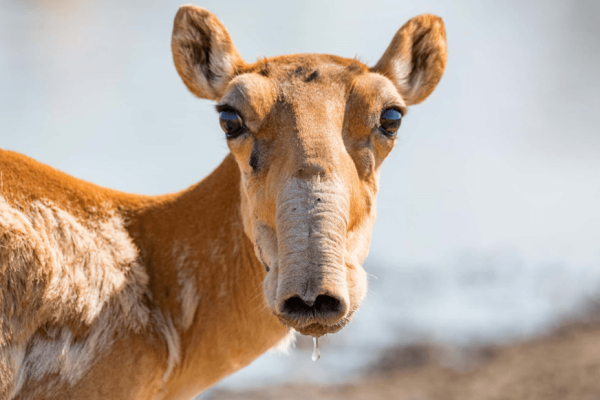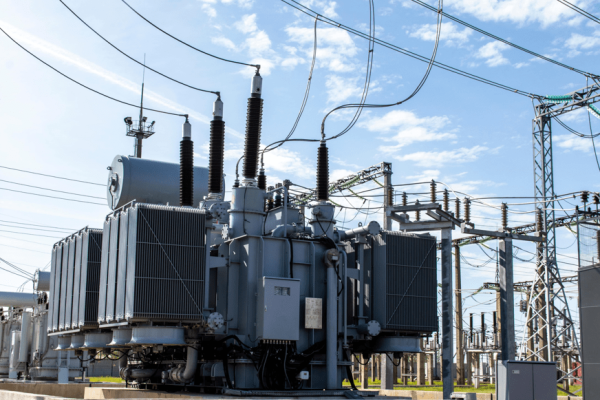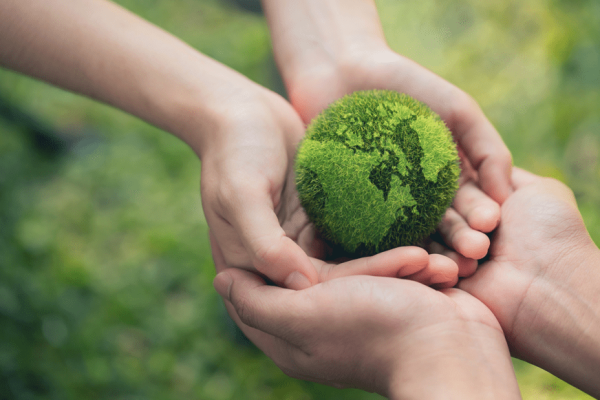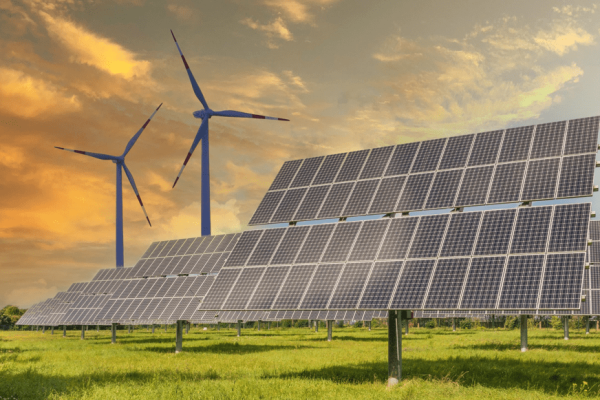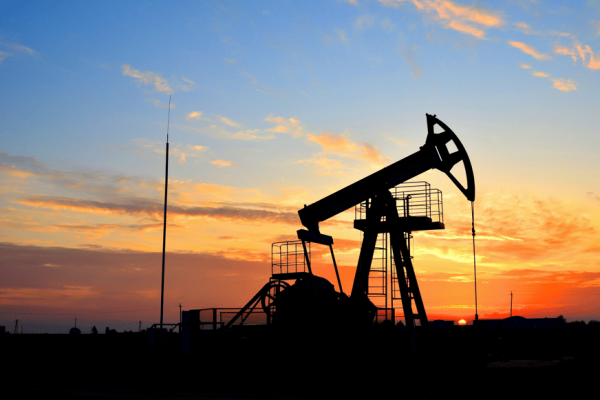Industrial enterprises navigate to sustainable development
5 November 2021
1431

Major industrial companies’ investments into social and infrastructure projects in 2019 exceeded 140 billion Tenge
Kazakhstan has been holding leading positions in Central Asia, while the country’s unconditional objective is to enter the 30 most developed economies in the world. Currently, Kazakhstan has already been implementing reforms, adopting the OECD (Organization for Economic Cooperation and Development) legal instruments, best practices, and standards.

The level of a country’s development is an integral indicator of economic and social development, and of the state of the environment. This totality fits into the “sustainable development” concept. The term not only means stable economic growth, but also implies such a path of economic development that does not cause irreparable harm to the environment and has a clear social orientation.
The development of the Kazakhstani economy in recent years is associated both with overcoming the crisis and with the program of reforms undertaken with due account of “The Agenda for Sustainable Development for the Period up to 2030” UN Resolution adopted in 2015, within the framework of which 17 goals in the field of sustainable development were approved.
For Kazakhstan, the implementation of sustainable development goals is to provide conditions for the development of human capital and environmental protection. From playgrounds for kids in every yard and organizing waste segregation of waste and all the way up to adoption of a new Environmental Code – everything fits into the overall context of sustainable development.
Industrial companies, and first of all, subsoil users, within the framework of their contractual obligations also participate in resolving social and environmental problems. Business costs channeled for social development and local infrastructure are unevenly distributed across regions due to differences in investment into mining projects. For example, in Atyrau Region, two largest oil and gas projects are being implemented at Tengiz and Kashagan Fields, whereas in West Kazakhstan region, Karachaganak Field is being developed.

The information provided in the report on the Extractive Industries Transparency Initiative takes into account the investments of companies in the regions of production, but this data does not include investments into republican programs and other regions of the country (for example, KazMunayGas, on behalf of the Government, invested into the infrastructure of Turkestan).
The major Kazakhstani companies annually publish reports on sustainable development in the format of GRI* international set of standards Within the framework of public reporting many targets for company development have set, including standards on employee health and safety, anti-discrimination, gender equality, human rights assessment, energy and emissions reduction, waste management, and general management.
The companies’ reports also contain information on social investments, which exceeded 140 billion Tenge in 2019.

It is worth noting that the leading position in social investments in 2019 was taken not by an oil company, but by Eurasian Resources Group (ERG) with the total social investment of USD 109.8 million. Of those, 83% fell on direct investments into social infrastructure, while USD 53 million of total costs were channeled to the implementation of projects in the field of culture, infrastructure, and education across Kazakhstan.

According to EGR Year 2019 Sustainable Development Report, total social investments in the countries of presence amounted to USD 118 million, with 93% of funds in Kazakhstan. In addition, funding for socially significant programs is carried out in African countries, too. Thus, since 2017, more than USD 1 million has been allocated for the implementation of the program to protect children from child labour exploitation, in particular, for the construction of Child Protection Centres in Democratic Republic of the Congo. The economic value distributed by the company, including government agencies in the countries of presence, employees, local communities, suppliers, lenders, and shareholders, in 2019 amounted to USD 4.18 billion.
The largest social projects implemented in Kazakhstan by ERG in 2019 were the construction of a football arena (USD 3.1 million) and the performance of archaeological and scientific restoration works in Kultobe ancient settlement in Turkestan (USD 2.5 million). These projects are being implemented within the framework of the adopted three-year Regional Development Program.
In addition to social development objectives, over the next 10 years, it is planned to invest about USD 350 million into technologies to reduce particulate matter emissions at the company’s power plants to meet the EU standards.
The implementation of sustainable development goals and objectives and the active involvement of Kazakhstani companies in social and environmental activities is an important stage for the development of the country on the way to entering the TOP-30 most developed countries of the world.
* Global Reporting Initiative (GRI) – uniform standards and guidelines for reporting.
Popular articles
Watch allGas Production Declined, While Prices Jumped 28% Year-on-Year
In January–July of this year, natural gas production in Kazakhstan amounted to 14.8 billion cubic meters, down 10.3% compared with Читать далее...
17 September 2025
4323
Which Social Networks and Messengers Do Kazakhstan’s Young People Prefer?
According to the analytical report “Youth of Kazakhstan” for 2024, one of the most common ways young people spend their Читать далее...
9 October 2025
4056
Who and why does Kazakhstan’s saiga antelope give trouble?
Experts question the department’s statistics, as well as decisions made at state level regarding saigas In early summer, there Читать далее...
28 June 2022
3620
Kazakhstan’s Citizens Are Meat Lovers: Meat and Meat Product Consumption Up by 2%
In January–September of the current year, Kazakhstan produced 57.3 thousand tonnes of fresh or chilled meat from cattle, pigs, sheep, Читать далее...
29 October 2025
3121
Electric Vehicles Accounted for Less Than 1% of All Registered Cars in Kazakhstan
From January to July of this year, 925.8 thousand passenger cars were registered in Kazakhstan, 0.3% more than in the Читать далее...
28 August 2025
2871
“Pirating” in Kazakhstan: 59% of Young People Use Free Platforms to Watch Films and Series
According to the analytical report Youth of Kazakhstan for 2024, one of the most common leisure activities among young people Читать далее...
26 September 2025
2630
Power generation reaches 53.7bn kWh in January-July, up by 1.7% year on year. Gas turbine power plants with a capacity of 100,000 kW worth KZT18.6bn were commissioned in the first half of the year
Electricity tariffs went up by 5.8% year on year in August
16 September 2016
2148
Kazakh oil refineries supplied 73.3% of motor fuel consumed and 97.4% of diesel fuel consumed in the country. Petrol output increased by 10.6% and production of gasoils by 3.6%
The price of the most popular octane-93 petrol increased by 16.4% year on year to KZT125 per litre in July. The price of summer diesel increased by 3.3% year on year to KZT99 per litre
15 September 2016
1947
Safeguarding the nature: investment into environmental protection increased by 34% over the year
The number of fixed point sources of pollution in 10 years has increased by 58% Environmental issues are extremely Читать далее...
5 November 2021
1449
Industrial enterprises navigate to sustainable development
Major industrial companies’ investments into social and infrastructure projects in 2019 exceeded 140 billion Tenge Kazakhstan has been holding Читать далее...
5 November 2021
1431
How Much Do People in Kazakhstan Spend on Medicines?
In the second quarter of this year, household healthcare spending in Kazakhstan averaged 28.8 thousand tenge per household, 6.6% less Читать далее...
25 September 2025
1375
Focus on ESG: the world is confidently switching to green rails and sustainable development principles
In Kazakhstan, only some of the major backbone companies, major market players, and national development institutions are ready to implement Читать далее...
5 November 2021
1314
Output of unrefined and semi-refined gold increased by 21.5% year on year, that of refined gold by 16.5%
Jewellery prices jump by 20.1% year on year on average in Kazakhstan, by 50% in Astana
6 September 2016
1208
Renewable energy generation capacities goes up by 40% year-on-year in Kazakhstan in 1Q2016
Clean energy generation jumps by 130% year-on-year in this period
22 June 2016
1129
Kazakhstan’s crude oil and gas condensate output fall by 3.4% year on year in January-July 2016
In July 2016 crude oil and condensate went down by 0.9% year-on-year
26 September 2016
982
